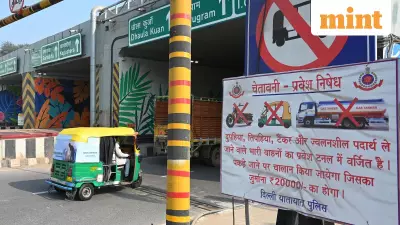
Government Official Caught in Anti-Corruption Sting
In a significant crackdown on corruption, the Tambaram sub-registrar office witnessed dramatic action on Thursday when Revathi, the official in charge, was arrested while accepting a bribe of Rs 2 lakh. The arrest was made by officials from the Directorate of Vigilance and Anti-Corruption (DVAC) who had set up an elaborate trap operation.
The Bribe Demand and Complaint
The case unfolded when Pravin Kumar, a resident of Nedunkundram, approached the sub-registrar's office to register a property document for 2,400 square feet of land he had purchased. According to police reports, Revathi, who was serving as both an assistant and the acting sub-registrar due to the vacant position, made an astonishing demand of Rs 10 lakh to process the registration.
After negotiations between Revathi and Pravin Kumar, they reached an agreement where the complainant would pay Rs 2 lakh immediately and the remaining Rs 8 lakh after receiving the registered document. Unwilling to succumb to corruption, Pravin Kumar decided to approach the DVAC and filed a formal complaint against the government official.
The Sting Operation
Acting swiftly on the complaint, DVAC officials designed a carefully planned trap operation. They provided Pravin Kumar with chemically treated currency notes worth Rs 2 lakh and instructed him to hand over the money to Revathi during the property registration process.
The operation proceeded as planned when Revathi accepted the bribe amount at her office. The moment she took the money, the waiting DVAC team, who had been monitoring the entire transaction, stormed into the office and caught her red-handed.
In a crucial procedural step, the officials seized the tainted currency notes from Revathi's table in the presence of two independent government witnesses, ensuring the evidence was properly documented for legal proceedings.
Legal Consequences and Judicial Action
Revathi was immediately placed under arrest following the successful sting operation. The accused official was subsequently produced before a magistrate court, which remanded her in judicial custody.
This case highlights the ongoing efforts by anti-corruption authorities to combat bribery in government offices, particularly in departments dealing with property registration where citizens are often vulnerable to extortion. The DVAC's prompt action demonstrates the effectiveness of their vigilance mechanisms in catching corrupt officials in the act.





